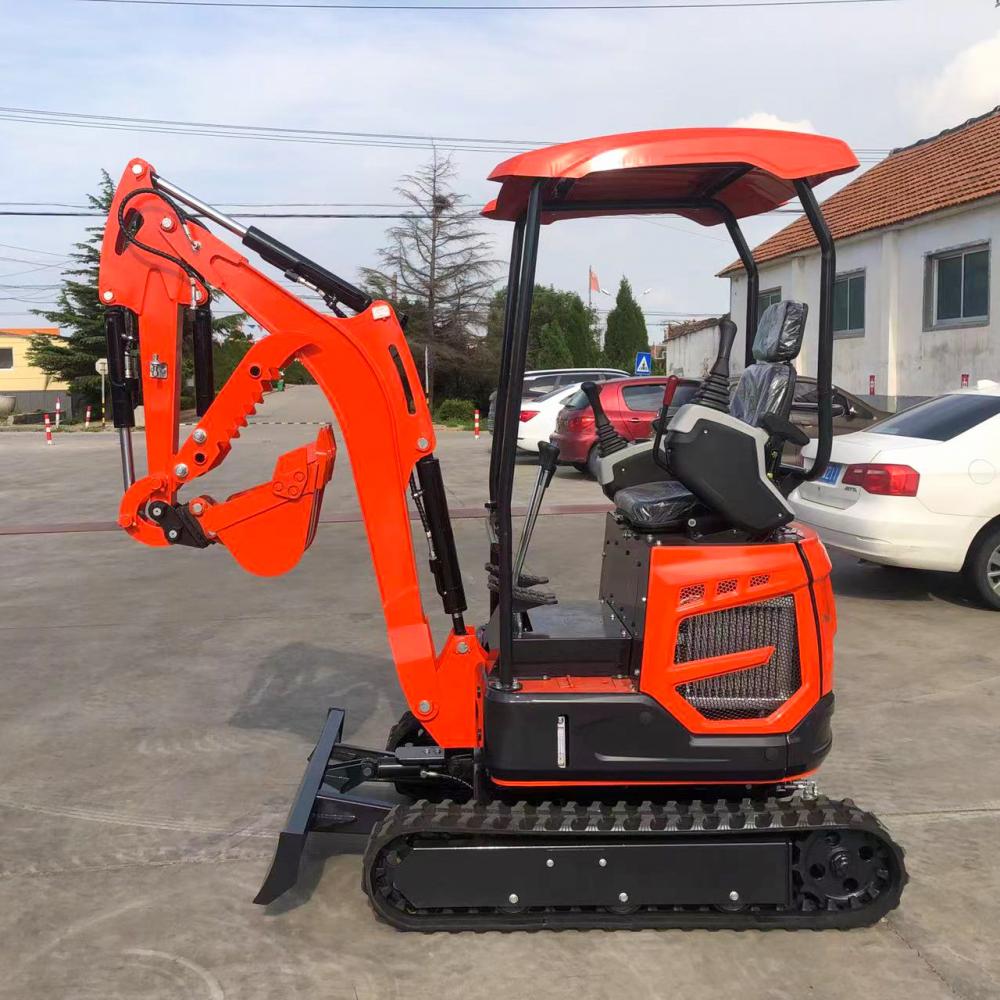It is reported that China's performance in the mining machinery and equipment is still weak, and the market conditions of China's mini-excavators are worrying. It is hoped that RMB bonds will be issued on the mainland. After the subsidy was cancelled, there was a risk in the market for small excavators. In 2010, the performance of the Chinese excavator market was surprising and it was in a blowout state. In the year, a total of 165,804 hydraulic excavators were sold, an increase of 78.25% year-on-year, creating the best results of the year. Excavators produced by many construction machinery companies were in short supply.
At the beginning of the year, the excavator market continued to prosper. According to statistics, 24 excavator companies sold more than 20,000 units in February, a year-on-year increase of 134.95%, and they doubled again.

But industry experts believe that we must guard against overheating the market. In this regard, Jin Liwen said that the Chinese excavator market is still relatively rational, but the situation of the small excavator market, or let him worry. In 2010, more than 20 provinces and municipalities included small excavators in the list of subsidies for purchase of agricultural machinery, which greatly stimulated the enthusiasm of enterprises in producing small excavators.
Jin Liwen worried that once the subsidies are cancelled, small excavator manufacturers may face market risks.
As the new darling of funds, the new entry threshold for small excavators is relatively low, and the threat of substitution is stronger. Once the subsidies are cancelled, the price advantage will be lost and the loader will probably repeat the mistakes.
Jin Liwen believes that if there is a bubble, it is still difficult to draw conclusions, but Caterpillar is very optimistic about this year's situation. "China's excavator market will develop even better."
However, relevant people believe that the Chinese excavator market still has great potential.
This judgment promoted Caterpillar's expansion of production capacity in China and a series of actions also demonstrated its intention to seize the market.
Last June, Caterpillar announced the expansion of the excavator plant in Xuzhou. The expansion plan will be completed in 2014. By then, Caterpillar will expand its excavator production capacity by a factor of four. In addition, the new hydraulic excavator factory in Wujiang, Jiangsu Province is scheduled to start production in 2012, and Tianjin’s large engine factory is scheduled to start production in 2013.
At the same time, Caterpillar also plans to transfer as much of the purchase of complex parts from Chinese factories as possible from Japan to China. It is reported that about 40% of the parts of the company's excavator factory in China come from Japan and plans to reduce the proportion by at least a quarter within five years.
We hope to issue renminbi bonds on the mainland. "The mainland is a broader market. We certainly hope to issue renminbi bonds on the mainland," said Jin Liwen.
In late November 2010, Caterpillar selected to issue a RMB 1 billion bond in Hong Kong that expires in December 2012 with a coupon rate of 2%.
In February last year, Hong Kong liberalized the issuer, and non-inland banks and companies can also issue renminbi-denominated bonds in Hong Kong. Following the early adopters of McDonald's, Caterpillar issued a one-billion-dollar bond in one fell swoop and became the largest non-financial overseas company to issue RMB bonds.
Although the current restrictions on domestic distribution have not been liberalized, Jin Liwen is optimistic about China's credit market.
It is reported that the RMB 1 billion yuan from issuing bonds will be used for Caterpillar's financial leasing business in China.
At present, Caterpillar's financial services company's business scope includes financial leasing, installment payments, tax-saving leasing, government leasing, agents short-term financing.

 But industry experts believe that we must guard against overheating the market. In this regard, Jin Liwen said that the Chinese excavator market is still relatively rational, but the situation of the small excavator market, or let him worry. In 2010, more than 20 provinces and municipalities included small excavators in the list of subsidies for purchase of agricultural machinery, which greatly stimulated the enthusiasm of enterprises in producing small excavators.
But industry experts believe that we must guard against overheating the market. In this regard, Jin Liwen said that the Chinese excavator market is still relatively rational, but the situation of the small excavator market, or let him worry. In 2010, more than 20 provinces and municipalities included small excavators in the list of subsidies for purchase of agricultural machinery, which greatly stimulated the enthusiasm of enterprises in producing small excavators. 
